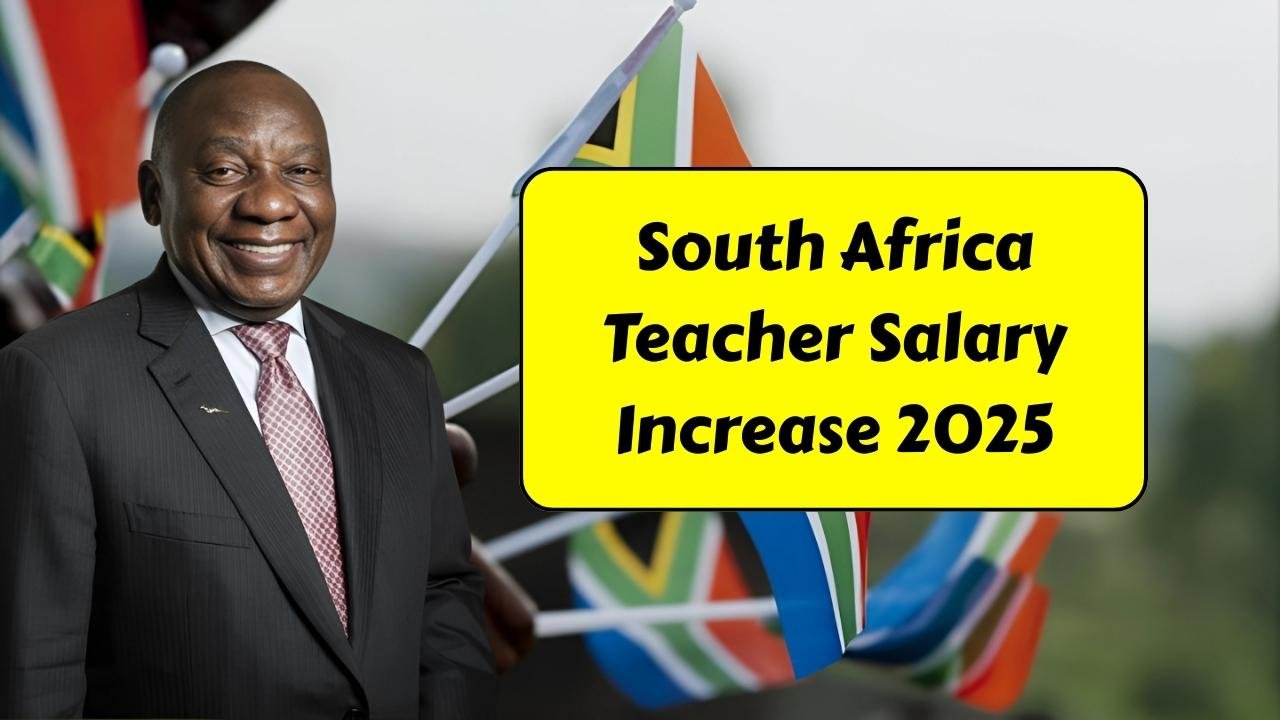Join on WhatsApp
Get the latest updates directly on WhatsApp – motivation, news & more!
Teachers in South Africa are set to receive higher salaries starting April 2025, following a new agreement between the Department of Basic Education (DBE) and public sector unions. The deal provides a 5.5% wage increase for all educators, applied retroactively, meaning teachers will also receive back pay for the months before the increase was officially implemented.
This salary adjustment is part of a multi-year wage agreement, signed in February 2025, which also guarantees future increases in 2026 and 2027. These raises will be linked to the Consumer Price Index (CPI), with a minimum increase of 4% and a maximum of 6%, protecting teachers’ salaries from inflation while considering national budget constraints.
The raise provides much-needed financial relief for teachers and reinforces the government’s acknowledgment of teaching as a cornerstone of South Africa’s social and economic development.
How Teacher Pay Works in South Africa
Teacher salaries in South Africa are based on Relative Education Qualification Value (REQV) levels and salary notches:
- REQV Levels reflect a teacher’s qualifications.
- Salary notches indicate years of service and experience.
This system ensures that both education and experience determine overall pay.
- REQV 10–12: Matric plus partial teacher training
- REQV 13: Recognized diploma or degree
- REQV 14–17: Advanced degrees or postgraduate qualifications
There are 432 salary notches, from entry-level teachers to principals, ensuring progression and reward for long-term commitment.
2025 Salary Scale for Classroom Teachers
The salary increase improves earnings across all levels:
| Role / REQV Level | Notch Range | 2024 Salary Range | 2025 Salary Range |
|---|---|---|---|
| Entry-Level (REQV 10–12) | 1–106 | R154,671 – R254,037 | R163,179 – R268,008 |
| Mid-Level (REQV 10–12) | 108–268 | R256,395 – R547,305 | R270,498 – R577,407 |
| Senior Teacher (REQV 13) | 200–268 | R393,402 – R547,305 | R415,038 – R577,407 |
| Master Teacher (REQV 13) | 232–268 | R460,539 – R547,305 | R485,868 – R577,407 |
| Teacher (REQV 14–17) | 164–326 | R333,624 – R723,798 | R351,972 – R763,608 |
| Senior Teacher (REQV 14–17) | 200–326 | R393,402 – R723,798 | R415,038 – R763,608 |
| Master Teacher (REQV 14–17) | 232–326 | R460,539 – R723,798 | R485,868 – R763,608 |
Key points:
- Entry-level teachers now earn around R13,600 per month.
- Highly qualified senior teachers can earn over R63,000 per month, highlighting long-term career growth.
Salary Scale for School Management
Management roles have also received significant increases:
| Role | Notch Range | 2024 Salary Range | 2025 Salary Range |
|---|---|---|---|
| Departmental Head | 210–392 | R412,551 – R997,836 | R435,240 – R1,052,718 |
| Deputy Principal | 244–408 | R487,737 – R1,078,725 | R514,563 – R1,138,056 |
| Principal (P5) | 350–432 | R813,675 – R1,209,279 | R858,426 – R1,275,789 |
Top principals can now earn over R106,000 per month, reflecting the responsibilities of leadership positions in schools.
Additional Benefits for Teachers
Teacher compensation goes beyond salaries. Additional benefits include:
- Pension fund contributions for retirement security
- Medical aid subsidies for health coverage
- Housing allowances to support accommodation
- Annual bonuses and incentives to boost total income
These benefits make the overall teacher package more attractive and sustainable.
Challenges in the Education Sector
Despite higher salaries, South Africa still faces a shortage of qualified teachers, especially in mathematics and science. Many schools struggle to offer essential subjects due to insufficient staffing. Key challenges include:
- Oversupply of teachers in some subjects and shortage in others
- Limited retraining programs to switch to high-demand subjects
- Budget constraints preventing adequate hiring
- Rural schools struggling to retain skilled educators
The South African Democratic Teachers Union (SADTU) is urging the DBE to better plan teacher training and align it with national needs.
Conclusion
The 2025 teacher salary adjustments are a positive step, recognizing the essential role of educators in South Africa. By linking future raises to CPI, the government ensures salaries remain stable against inflation. However, solving teacher shortages, improving training, and supporting subject specialization will be crucial for the long-term improvement of South African education.



Thanks for the contribution by the government and unions.Teachers are not willing to come in our rural communities because of lack of good services here in our villages.We used to receive rural allowance,which was unceremoniously canelled.Most of the youth than flocked into our areas because of that incentive.As principals we struggle a lot to get relevant qualified and quality educators in our villages as they do not have something tangible that attract them to our schools.The idea of being given incentives in a form of rural allowance and hard to teach environment was well thought idealogy.Please revisit it.